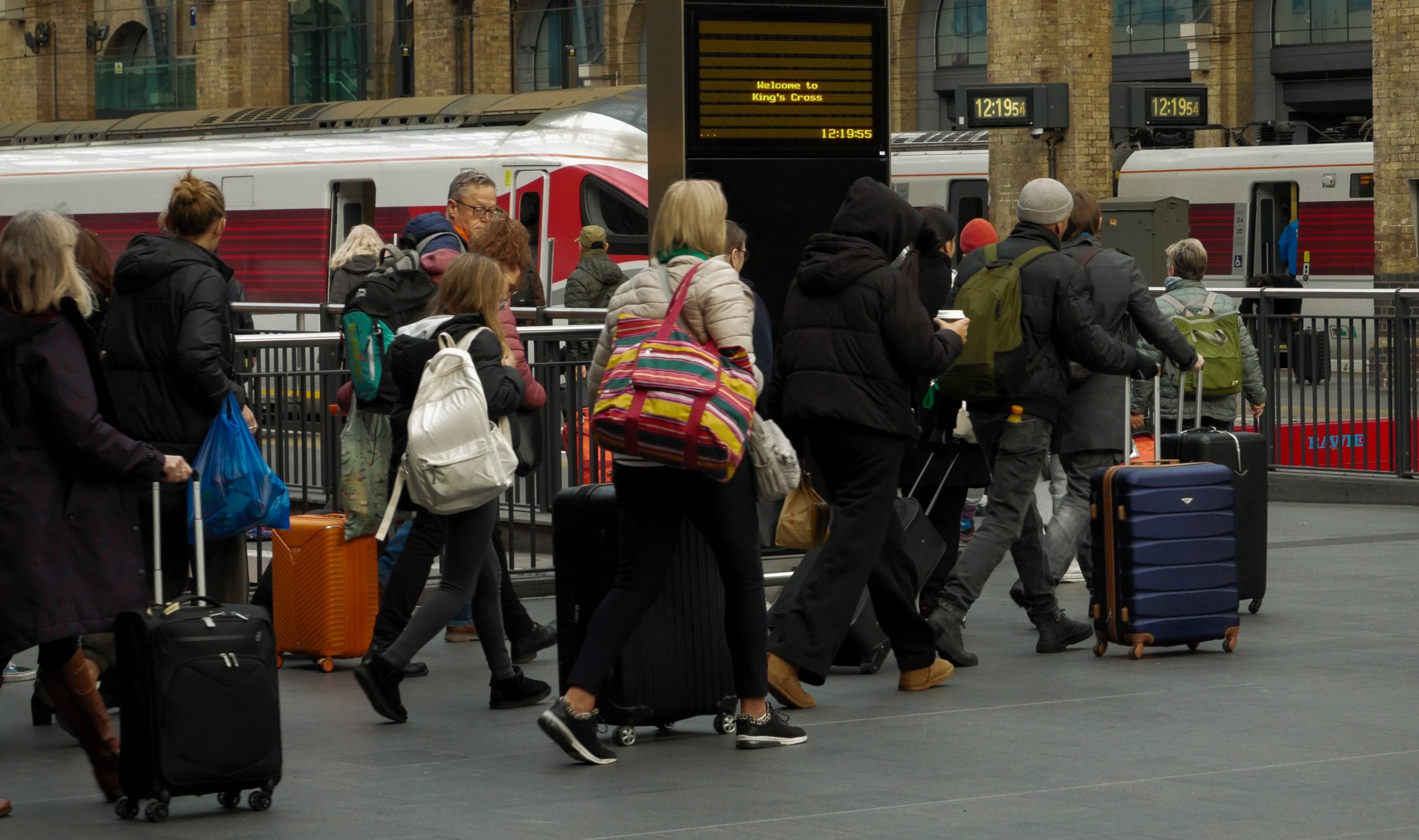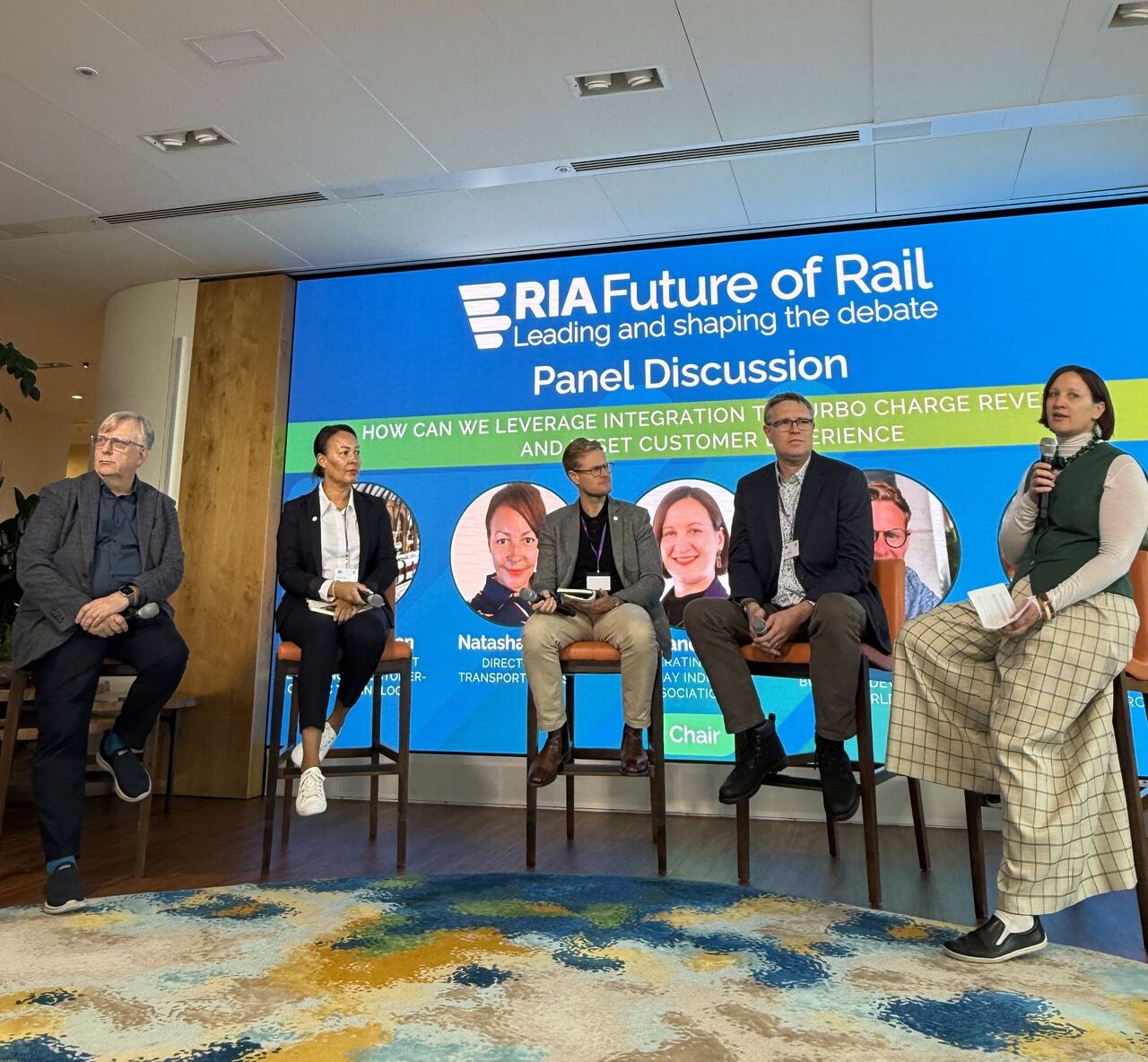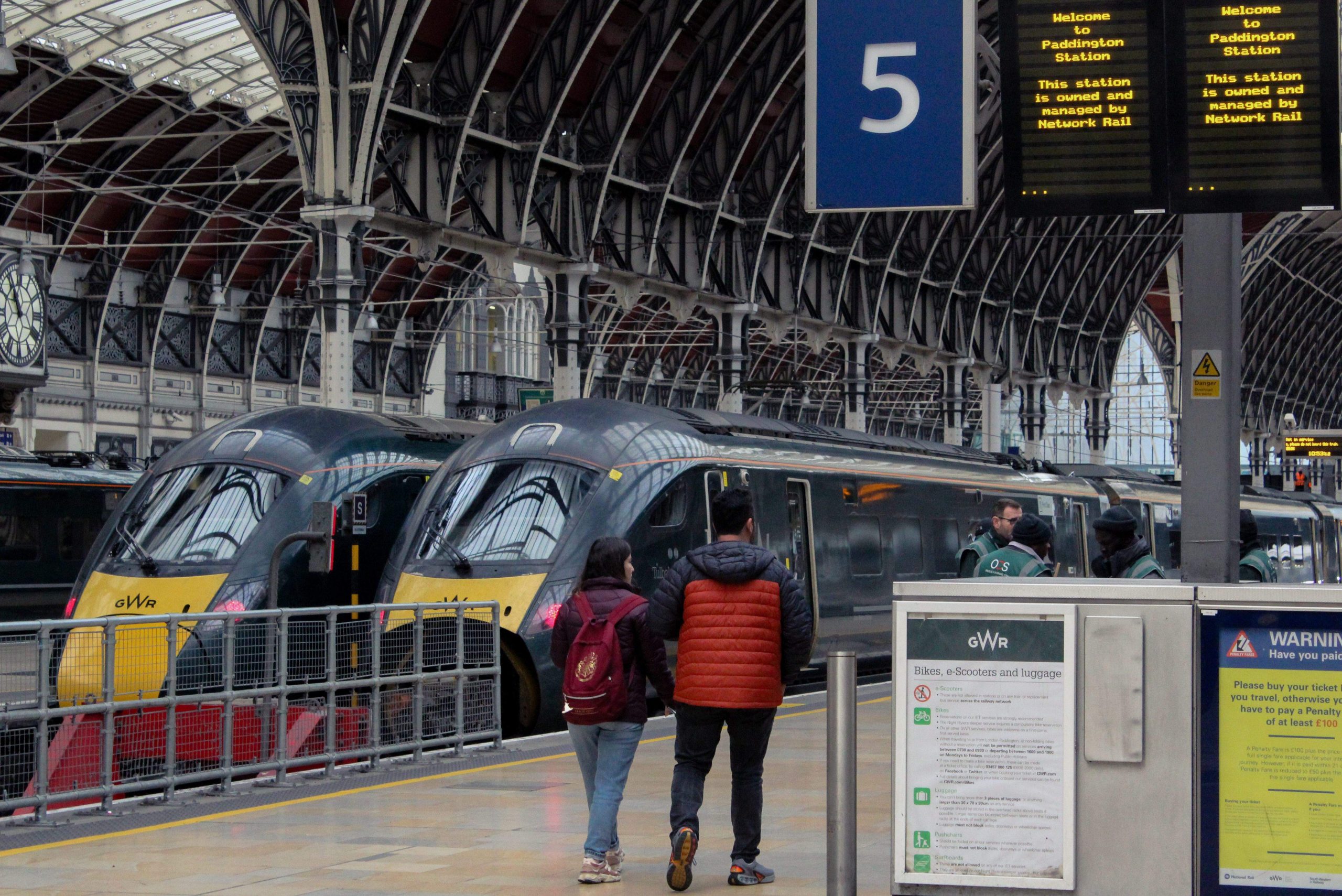
This month, we caught up with James Watson, Managing Director at OnTrack Retail, to discuss what it truly means to put passengers first. From designing accessible, user-friendly apps to understanding real passenger behaviour and embracing innovation, James shared how OnTrack is adapting to meet modern expectations and what the future holds for independent retailers as rail reform takes shape.
Can you tell us a bit about yourself, and a fun fact?
I am James Watson, the Managing Director of OnTrack Retail. I joined in 2015, initially on a four-week contract, and I have been here ever since. Before that, I spent thirteen years at Tesco, starting with a weekend job in the bakery whilst I was at University and finishing as an IT Product Owner in Tesco’s European operations.
Fun Fact: I have some very surprising hobbies, ask me about them when you see me!
For those who may not be familiar, who is OnTrack, and what services do you provide
OnTrack Retail designs, builds, and runs digital rail retail. We power websites, apps, payments, fraud prevention, and the tools customer service teams use every day, including refunds and Delay Repay. We work primarily with Rail Delivery Group, Govia Thameslink Railway, Southeastern, and TransPennine Express, and we also support independent retail through our own channel, TicketyBoo, so we see the market from both sides. Beyond the checkout, we provide analytics, content tools, and service tooling that help operators spot issues quickly and fix them faster.
What do you feel sets OnTrack apart from others in the rail retail space?
In a field full of brilliant, inventive competitors, it is hard to stand out. That is good for passengers; it keeps all of us sharp. You win by fit, not by noise.
We are a little smaller than many, which often makes us quicker and more bespoke. Our strength is shaping the product for each brand, so it reflects the needs of that brand’s customers and the way its operational teams work.
Our size also lets us move sideways when it helps; we can explore different products or spin up new projects without layers of red tape or bureaucracy. Decisions can be made very quickly, sometimes a touch too quickly, and we learn fast.
Since your launch in 2014, how has the OnTrack Retail platform developed and adapted to changing passenger needs?
Both the rail world and the tech world are massively different now compared to 2014. Back then, most tickets were bought on a website, then collected from a Ticket Vending Machine. Today, most purchases happen in apps, with digital fulfilment inside the same app. The range of tickets has grown, the rules have grown more complex, and that has increased the need for clearer user experience and smarter tools to help people find the ticket that truly fits their journey.
Payments have changed just as much. In 2014, one card option at checkout was usually enough. Now, passengers expect a wide choice, digital wallets, open banking, instalments, corporate options, and saved details. That convenience converts better for our clients, and it reduces friction for customers.
We have invested heavily in the platform over the past decade. The pace is so fast that sometimes you invest simply to keep pace with the market, and to stay level with strong competitors. That is a good news story for passengers, because it delivers faster, clearer journeys and better support when plans change.
When creating products or services, what matters most to OnTrack in ensuring they truly meet passenger needs?
We start with real behaviour, not hunches. We watch how people actually search and buy, we listen to customer service calls, and we test with passengers who do not live and breathe rail. Three principles guide us: be clear on price and trade-offs, reduce effort at the most stressful moments, and respect people’s time and data. We measure changes against real outcomes, fewer support contacts, faster purchase, higher reuse, not just vanity metrics. Accessibility is non-negotiable; we build for screen readers, colour contrast, and motor access from the start. If a change does not move one of those needles, it probably does not ship.
Looking ahead, what does the future of rail retail look like for independent retailers such as OnTrack?
Choice will matter more, not less. People will expect clearer recommendations, proactive help during disruption, and simple ways to join up rail with other modes, such as bus, micromobility, and parking. Independent retailers can thrive if two things hold: open access to fares and availability, and the freedom to compete on service and experience. With those in place, you will see faster innovation in areas like real-time occupancy hints, smarter after-sales that remove friction, and greener nudges at the point of choice. The winners will be the teams that pair trustworthy data with kind design, so good decisions feel effortless.
What is next for OnTrack, and are there any upcoming innovations you see entering the rail retail market?
World domination.
In truth, it is a very exciting time for OnTrack and for the industry as a whole. New opportunities are opening across the rail ecosystem, and we, like our competitors, are working hard to keep our products and services in peak condition so we are ready to win them.
We have a few innovation projects up our sleeves, and we are genuinely excited about them. With a little luck, you will see them in an app or at a station near you very soon.
With Great British Railways expected to retail tickets, how do you see this affecting independent rail retailers like OnTrack? Do you think they can coexist and compete on a fair basis?
Coexistence is possible, but only with clear, enforceable rules and real transparency. It is difficult to see how the system can be fair, equitable, and impartial if the body that sets and polices the rules also retail’s tickets in competition. That reality demands visible safeguards, independently verified, not assurances.
Every retailer should have equal access to fares, availability, and change data, fees should be published with cost-based evidence, and artificial limits that punish normal search behaviour, such as restrictive look-to-book thresholds, should be removed. There must be a proper route to challenge decisions, with clear timelines for fixes rather than a black box.
Independent retailers also need a seat at the decision-making tables, in governance forums, technical working groups, and change control, rather than being informed after the fact. With those principles in place, competition can focus on service, value, and pace, which is what passengers deserve.
Given the sensitivities around Great British Railways also acting as a retailer, what safeguards do you think are essential to ensure a thriving retail market?
First, a retail neutrality duty with an independent audit, not self-assessment. Second, equal access to data and fares. Third, transparent fee setting with cost-based evidence, plus a commitment to review fees regularly. Fourth, proportionate accreditation so small teams can enter and improve the market without months of gatekeeping. Finally, remove punitive look-to-book constraints; retailers need to search widely to find the best fare for a customer, and that benefits passengers and operators alike.
With the Government’s response on rail reform still pending, if you could ask the Department to take one action to improve outcomes for both independent retailers like OnTrack and passengers, what would it be?
Mandate and build an Availability Distribution Service, with equal terms for all accredited retailers, clear service levels, and independent oversight by the Office of Rail and Road. If everyone can see accurate fares and availability in real time, competition moves to where it should be: clearer choices, better support, and sharper prices for passengers. Pair that with a simple right to data portability for customer accounts and tickets, and you strengthen trust while encouraging genuine innovation.
A big thank you to James Watson for sharing his thoughts on passenger needs, accessibility, and choice. Discover how OnTrack Retail is making rail travel smarter and simpler or book your next ticket through TicketyBoo.






